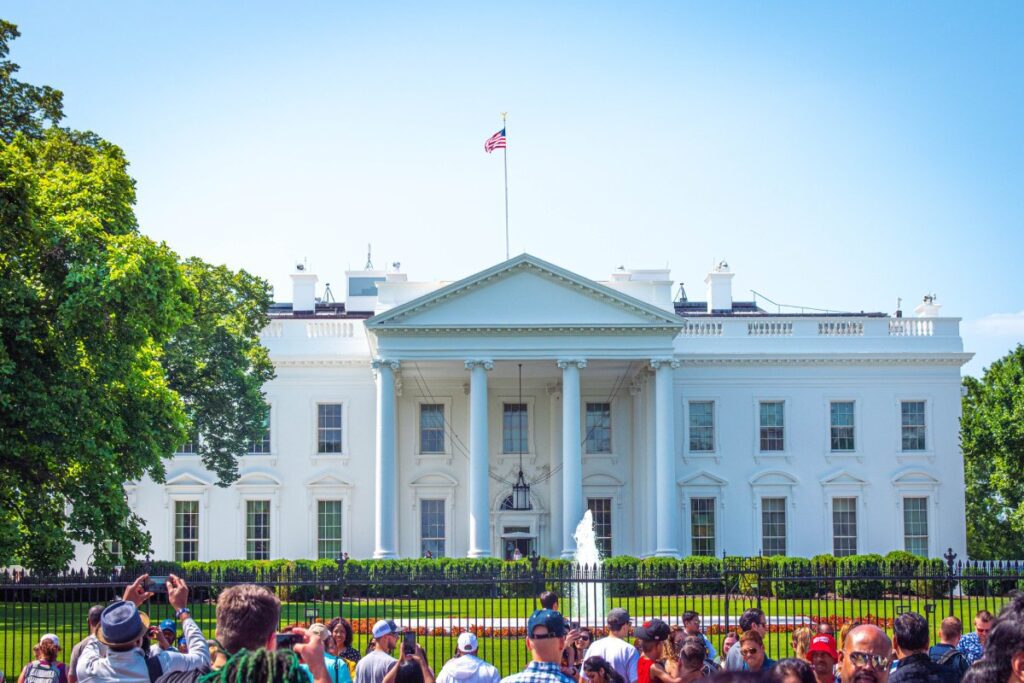
With the 2024 Republican presidential ticket of Donald Trump and J.D. Vance solidified last week in Milwaukee, Democrats have a lot of work to do before their convention in less than a month â now without an official candidate or a vice presidential nominee.
On Sunday, just after announcing he would be stepping out of the race, President Biden endorsed his vice president, Kamala Harris, for the role. This comes only days after the former president Trump was shot at a campaign rally, surviving the assassination attempt with only minor injuries. Days later he selected populist icon, Ohio senator J.D. Vance, as his running mate.
For the travel industry, whichever of the two tickets prevails in November will mean a wildly different landscape for the next four years.
But weâve seen a Trump presidency before. And we can look to the last four years of Biden-Harris for hints of what she might do if sheâs ultimately both a) the candidate and b) elected in November.
A Second Trump Administration
Reading the tea leaves from the former presidentâs policies on visas, regulation, the environment and more, we could see some of the following actions impacting the travel industry if the former president is elected a second time.
The DOTâs New Junk Fee Disclosure Rule Could Be At Risk: The new junk fee disclosure rule is set to take effect in October and requires airlines to disclose all fees associated with buying a ticket. Major airlines have already sued to block it.
The text of the rule in the Federal Register notes that a 2017 executive order from the Trump administration undid a similar rule before it could take effect.
Project 2025, a series of conservative policy proposals that Trump has not publicly endorsed, refers to âburdensome disclosure mandatesâ in the chapter on the Department of Transportation. âThe Trump Administration reformed the process for issuing such âunfair and deceptive practicesâ rules, but the Biden Administration promptly reversed those reforms. A new Administration should restore them.â
Visa Delays: It might take longer to get a visa. During the first Trump Administration there was a hiring freeze of visa processing staff at the State Department. This, coupled with high pent-up demand, reduced staff during the pandemic, boosted vetting procedures and caused delays and denials in visa issuance for many applicants, particularly those from countries flagged for higher security concernsââ.
A Revival of Travel Bans: The administrationâs travel bans could be reinstated or expanded under his next administration. In January 2017, the Trump administration issued Executive Order 13769 and restricted entry to the United States for citizens from Iran, Iraq, Libya, Somalia, Sudan, Syria, and Yemen. The Biden-Harris administration revoked these bans.
An Inconsistent Merger Atmosphere. A second Trump administration could be more friendly to airlines looking for consolidation, but thereâs also a chance it could have a more populist approach. During Trumpâs first term, his administration held an âinconsistentâ stance on mergers, according to a law journal that specializes in antitrust issues – the Trump administration controversially approved the Northeast Alliance between American Airlines and JetBlue. Yet it sought to block high profile mergers, such as AT&T-Time Warner.
Doubling Down on an “America First” Approach: The former president continues to campaign on his Make America Great Again platform. This stance was not popular with many of Americaâs historic allies and could result in reduced international cooperation and potentially strained relationships with some countries, affecting global travel patterns and international tourism.
Greater Infrastructure Investments: The former president likes infrastructure. He famously called La Guardia airport â which has since been beautifully transformed â âthird worldâ during a 2016 debate with Hillary Clinton. He also proposed an ultimately unsuccessful $1.5 trillion infrastructure plan aimed to invest in various projects over 10 years. That plan faced significant challenges in Congress and ended with no major bill being passedââââ. In a second administration, he could likely try again – especially if he has a friendlier congress.
Fewer Environmental Rules: Prepare for less environmental regulation. The Trump administration relaxed climate rules during its initial term. This included weakening standards on air and water quality, reducing restrictions on fossil fuel production, and changing rules that had been designed to limit pollution from power plants and vehicles. He also withdrew the United States from the Paris Climate Accord on June 1, 2017, arguing that the agreement was unfair to the U.S. and would undermine the nation’s economy.
A Possible Hardline on USAâs DMO: During the first Trump administration, it tried to eliminate funding for Brand USA, Americaâs national destination marketing organization. In a 2018 budget proposal, the administration proposed cutting the governmentâs annual grant to Brand USA and putting it toward the Department of Homeland Security. Ultimately, however, the Brand USA Extension Act reauthorized the DMO through 2027.
A New Harris Administration
In the event Vice President Kamala Harris becomes the the democratic nominee for president and she is able to beat Donald Trump at the polls in November, hereâs what it might mean for the travel sector.
A Continued Hard Line on Mergers. The Biden administration has been hawkish on antitrust enforcement, successfully suing to block the JetBlue-Spirit merger â the first airline merger blocked in the past two decades. It also undid the Northeast Alliance. Now, the Biden administration is expected to release a decision on the Alaska-Hawaiian merger in the coming months.
Progress on Visa Wait Times: For much of 2022 and 2023, visa wait times remained stuck at over 400 days on average for first-time travelers in some top inbound markets, a hangover from the pandemic.
The State Department has implemented a series of changes like waiving interviews for select applicants, moving staff to countries with large backlogs, and hiring staff back to pre-pandemic levels. In December 2023, the State Department extended its visa interview waiver authority for visa applicants indefinitely.
As of June 2024, according to U.S. Travel, U.S. visa wait times for major non-exempt source countries remain elevated, but have dropped to 300 days.
Some embassies, like in India, have seen major improvements, with a record number of visas issued. President Biden told Eric Garcetti, U.S. Ambassador to India, to tackle the visa delays, the ambassador said at the Skift India Summit.
Moderate Immigration Policy: Harris would likely adopt a more moderate stance on immigration than a Trump administration, potentially easing visa processes and encouraging more international visitors to the U.S. The Biden-Harris administration also revoked the Trump administration’s travel ban.
A Continued Investment in International Relations: Harris’s global stance would likely mirror the Biden administration’s foreign policy objectives – including its commitment to alliances such as NATO. Her experience as vice president in meeting world leaders could foster improved diplomatic ties, potentially leading to increased bilateral tourism agreements and easier travel between countries.
A Focus On the Climate Crisis: The travel industry can expect a continued focus on climate change from Harris. In 2021, the Biden-Harris administration re-entered the Paris Climate Accord after the Trump administration pulled out of the agreement in 2017. That re-committed the U.S. to reducing greenhouse gas emissions and working with other nations to combat global warmingââ.
Airlinesâ Automatic Refunds: In addition to the new junk fee disclosure rule, the Department of Transportation in the Biden-Harris administration passed a requirement that airlines provide automatic cash refunds in instances where flights are significantly delayed or canceled, checked baggage is delayed or when ancillary services that were paid for are not provided. Itâs due to take effect in October.Â
Skift will be closely following all developments and reporting on how the 2024 election could impact the travel sector.

